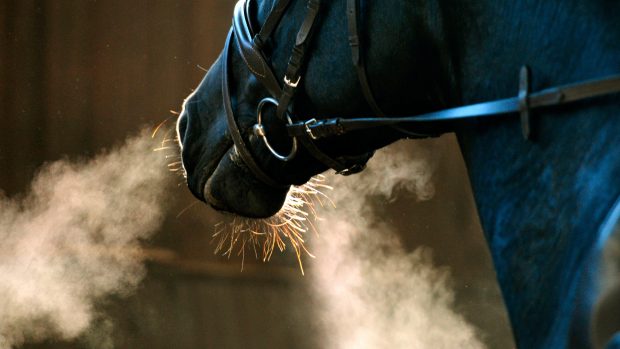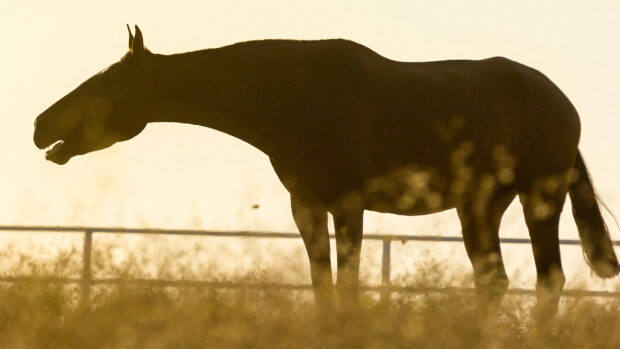Q: My 11-year-old 14.2hh cob gelding suffered from a virus last winter. He was very flat and exhausted. The vet came out and prescribed antibiotics and Ventipulmin for his breathing and he stabilised. I then gave him six weeks off and he’s been living out ever since. However, last month he collapsed.
The vet gave him chromoglycate and steroid nebuliser, which helped him recover. Now, he is off steroids, but he is still not 100 per cent and my vet has diagnosed “small airway disease”. He had a booster vaccine, which gave him a cough for a while afterwards, and is also is prone to mud fever. Can you help?
Homeopathic vet Nick Thompson MRCVS replies: This is a common problem – people get it too. Glandular fever and M.E. are thought to be manifestations of this chronic post viral fatigue-type syndrome.
One way to look at it is to imagine the virus comes along, hits the body and puts it out of balance. The virus is then more or less eliminated from the body, but the body cannot right itself.
Conventional medicine is very good at alleviating the symptoms – indeed, it may have saved your horse’s life – but if he does not get better, one gets into a chronic fatigue situation.
The homeopathic remedy Thuja is a good one to start with. It is often usedfor problems arising from a vaccine. In your horse’s case, there is not a direct link, but it is likely he had a reaction to his vaccine, as he had a cough afterwards.
This remedy can also help mud fever. I use a 1M potency twice daily for five days for treating skin, then stop and assess the response after a week.
Silica can also help vaccine-related problems, and is good for treating chronic weakness and allergies. Signs you’d look for are a yielding, delicate horse with a lack of confidence, that may be anxious about noise.
They hate cold weather, but dislike stuffy stables, especially when acutely ill. Lymph nodes are often enlarged and hoof quality may be poor. This type of horse will be a poor doer.
| Click here to subscribe to HORSE magazine, which is packed with horsecare features every month |



